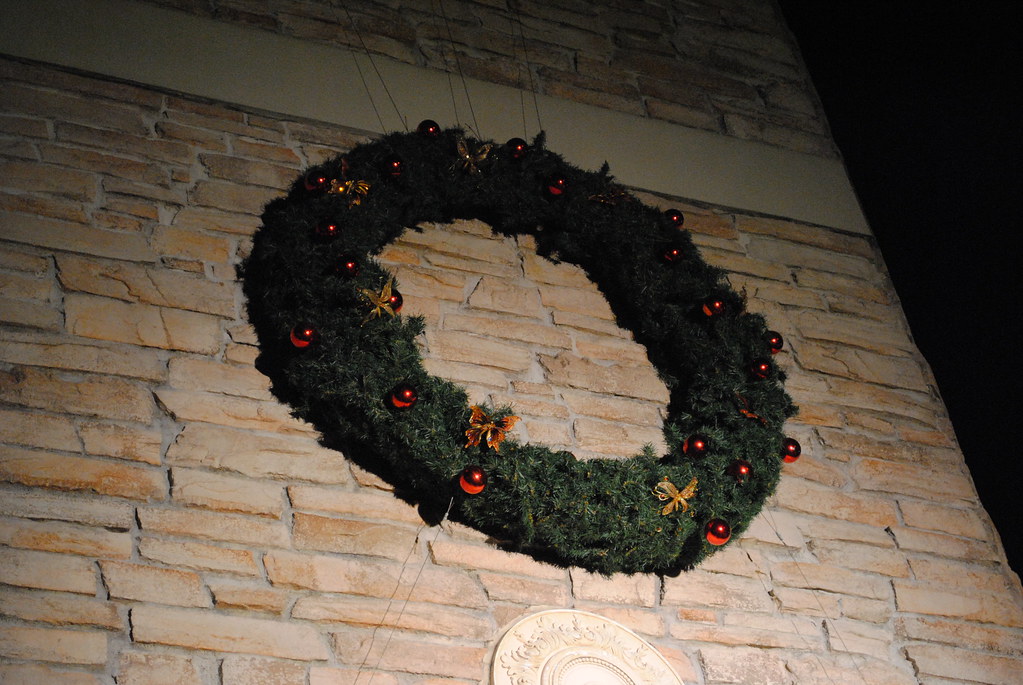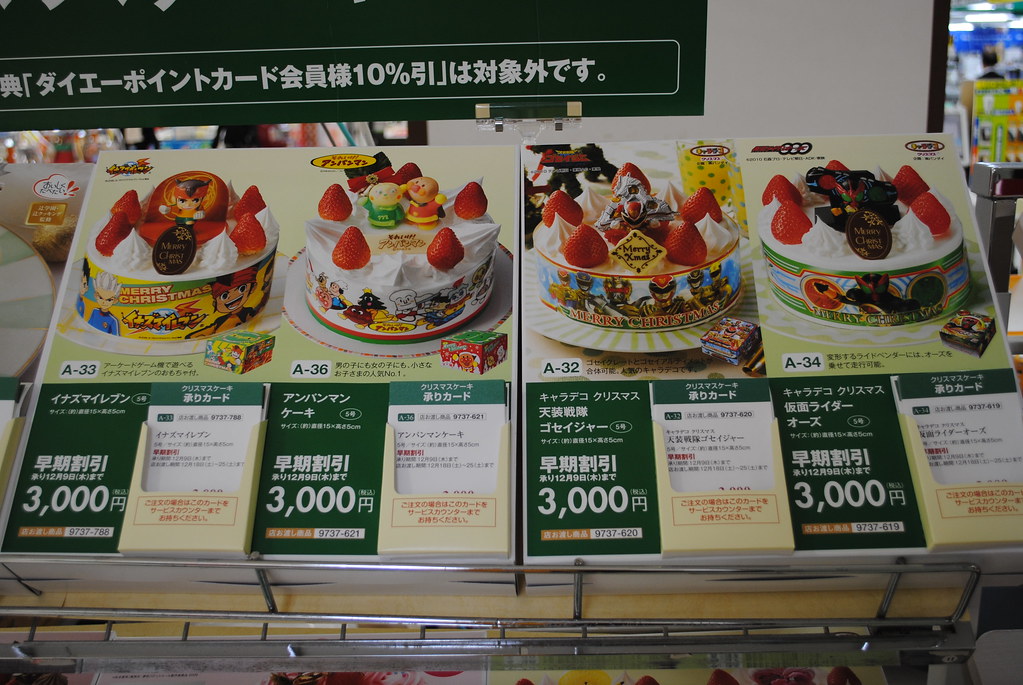Suddenly, it seems to be well and truly that time of year again; with an abrupt cold snap announcing the start of 冬 (ふゆ - fuyu - Winter), everyone seems to be following Rudolph's lead. Despite Japan not celebrating クリスマス to any great extent, decorations are up in the shops and a lot of people seem to be getting into the spirit with wreaths hung on their doors and twinkling lights strung up across their balconies. At first glance things seem much the same here as at home, but let's park the sleigh and have a proper look at exactly what the silly season is like in Japan; I bet my fake beard there'll be a few surprises in store.
Let's start with the similarities first. Generally クリスマス is for children and if you're feeling a bit cynical, a commercial event that sets businesses nationwide rubbing their hands eagerly. プレゼント (purezento - presents) from サンタさん (santasan - Santa) are given out on クリスマス morning and recently, both eating cake and putting up and decorating クリスマス trees has been getting more popular. Superficially it's all very similar, but you don't need to scratch the surface very far to start finding some contrast. The reason for this is simple - クリスマス doesn't hold any particular religious significance for Japan. For that matter, not many people treat their own religions strictly; while the country is widely considered 神道 (しんとう - Shinto) and Buddhist, both are practised in a very loose sense. Like a lot of religious and cultural festivals, クリスマス is considered a good excuse to go shopping and have fun and not too much more than that.
For the majority of families, クリスマス plays second fiddle to お正月 (おしょうがつ - Oshougatsu - New Year) and a lot of the traditions haven't been picked up on. Nobody hangs up stockings and only recently have parents started placing プレゼント under the tree; before that they were just popped beside the children's beds. Poor old mum and dad might not even have the day off - クリスマス isn't a public holiday in Japan and most people have to keep working up until 冬休み (ふゆやすみ - fuyu yasumi - Winter holidays) on the 28th. School students don't because クリスマス is the first day of school break, but I'm told that's more of a coincidence than anything. In a way, お正月 is the クリスマス of Japan - everybody has time off, traditional food is eaten and everybody splashes out on gifts for one another. This may take the air out of クリスマス slightly - in the latter case the プレゼント tend to be more modest and in most cases there's no special meals planned for busy families preparing for the new year. The exception to this rule is young couples, many of whom consider クリスマス Eve to be a trendy time to go out on dates. They'll go out to the movies and have meals out at the many places advertising special クリスマス lunches and dinners; even ファーストフード (fast food) places offer huge festive food packs for those wanting some クリスマス calories.
As for クリスマスケーキ (kurisumasu keeki - Christmas cake), that's probably not what you're used to either! When I first got here I asked what "kind" of cake it was, which was met with blank stares. I know why now - the average クリスマスケーキ is invariably what you'd call a plain バニラ (banira - vanilla) or バッター (battaa - butter) スポンジケーキ (suponji keeki - sponge cake). The importance is in the decorating, which is why クリスマスケーキ is sometimes called デコレーションケーキ (dekoreeshon keeki - "decoration cake"). Once the sponge is baked, it's intricately dressed with イチゴ (ichigo - strawberries) and 生クリーム (nama kuriimu - fresh cream), チョコレート (chokoreeto - chocolate) and candied サンタさん or other popular characters. Much like お歳暮 (おせいぼ - oseibo - end of year gifts), thousands of varieties fill hundreds of catalogues, available to be delivered or picked up right up until the day. クリスマスケーキ seem to get more and more impressive with each successive shop, all competing to outdecorate and outsell their competitors in what must be a very lucrative industry. Traditionally, dad buys one on his way home from work and it's cut up and enjoyed with the family on クリスマス Eve.
Let's be honest - クリスマスケーキ, while very pretty, isn't going to replace plum pudding and if you're unlucky enough to be stuck at work on the 25th you'll probably find yourself feeling homesick. Fear not though - if there's one thing Japan always gets spot on, it's shopping. Head out to the sales and you'll find yourself joining throngs of people dodging elaborate decorations, rifling through bargains and listening to endless クリスマス carols piped through every speaker; it'll be just like home. Have a very Merry クリスマス - I hope サンタさん brings you everything you asked for and that the silly season is all you hoped. If not, remember that お正月 is just around the corner; that's when the celebrations really get going.





No comments:
Post a Comment
If you have any questions or additions, I would love to hear from you. I may not know the answer, but I'll do my best to find out in any case! You can post anonymously if you like, but abusive/unintelligible/inappropriate comments will not be published.